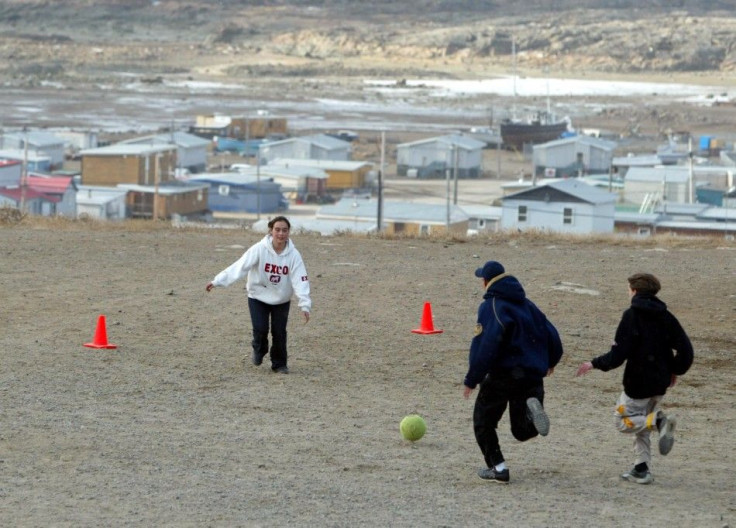CDC Study: Heat Can Trigger Brain Damage And Death, Footballers At Risk

A new study by the U.S. Centers for Disease Control and Prevention (CDC) has estimated close to 5,946 emergency department (ED) visits by patients suffering from heat illness, caused as a result of either sports or other outdoor recreational activities. The study, is a first time attempt to provide national estimates of heat illnesses among all sports participants.
The report published in the July 29 issue of CDC's Morbidity and Mortality Weekly Report, notes that athletes between 15 and 19 years, represented 35.6 percent of all ED visits, especially during the summers.
The agency estimated that annually, at least two per 100, 000 individuals visit emergency rooms for heat related problems. The study notes about 7.1 percent of those seeking heat related treatment were more often than not hospitalized. Males accounted for about 72.5 percent of such emergency visits while one third of such illnesses occurred in teenagers. The CDC notes that the absence of timely treatment in severe heat illness cases could lead to organ failure, brain damage and even death in some cases.
The report states that around 250 million Americans participate occasionally in some form of sports or outdoor recreational activities which make it more alarming to note that during 2001 to 2009, close to 6,000 people annually visited emergency rooms for heat-related illness. The CDC says that 66.4 percent of sport related heat illnesses were recorded between July and September. The CDC data suggests that August was the most critical month accounting for 33.2 percent of ER visits. The CDC notes that 19.8 per cent of the cases occurred in July, around 13.5 percent in September, and around 12.9 percent in June.
The study also links football to males between the ages of 15-19, which accounted for 57 percent of all non-fatal emergency room visits for heat illnesses. Also, those involved in regular general exercises such as walking, jogging and other aerobic activities were most likely to be affected. Those engaged in general exercise routine accounted for 20.4 percent of the estimated 5,946 annual visits to emergency rooms.
The study found that women under 14 years who played baseball and softball were likely to be affected by heat illnesses. Heat illnesses could also occur in girls aged between 15 to 19 years who are engaged in track and field and also older women and women in their twenties who are into a routine exercise regime.
Lead researcher, Ellen E. Yard, an Epidemic Intelligence Service Officer at the CDC voiced her concern saying that "Because heat-related illness is a preventable illness, any number is too high." Yard advised, "You need to be proactive in protecting yourself from heat illness," adding, "If heat illness does occur, recognize it right away and treat it appropriately." Her advice is to drink lots of water when engaged in outdoor activities and to try and limit most activities either early in the morning or late evening when temperatures are much cooler.
She noted that mild dehydration could progress tendencies of head exhaustion which at times lead to heat stroke. Although heat strokes are rare, she said it could be fatal. The study advices to look out for some symptoms of heat illness such as heat rash, muscle cramps, heavy sweating, nausea, vomiting, high body temperature, weakness, and even loss of consciousness.
Other guidelines and precautions pointed by the CDC say that parents and coaches could reduce ED visits by taking special steps to prevent young athletes from succumbing to the heat. Individuals who spend more time in the heat should take frequent breaks and drink plenty of fluids. The CDC recommends athletes and others pursuing outdoor sports to wear light weight, light-colored and loose-fitting clothing.
An important suggestion by the CDC is to start sports practices beginning in the summers to increase playing frequencies in a gradual manner as per the duration and intensity of the practice; thus enabling players to get more acclimatized to the heat.
© Copyright IBTimes 2024. All rights reserved.





















